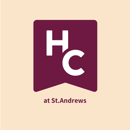Truly, this past week has felt momentous, not just internationally, but in our own St Andrews community. The important conversation regarding sexual and gender-based violence is not only continuing, but is now being responded to with the launch of two new platforms which aim to transform the landscape and bring about positive change.
Report + Support
The first of these is Report + Support, a new system launched by the University of St Andrews. Many other universities, such as Manchester, Glasgow, and UCL, are already using the same tool (also with the name Report + Support), after which our own has been modelled. The new St Andrews system, however, is not merely a carbon-copy. Having been initially discussed four years ago, it is clear that a great amount of care has gone into tailoring this resource to particularly benefit our community, and it sets to bring about important change.
For a start, the process of reporting and seeking help has now become significantly streamlined and simplified, in the form of an incredibly clear and intuitive website.
What is also important is that while Report + Support ostensibly replaces any existing methods of reporting, it does centralise all statements so that for the first time the University will be presented with a comprehensive data set.
The new tool feels inclusive. It is designed to be used not only by students, but by staff and members of the wider public as well.
Most apparent on visiting are the two buttons which greet the user as they scroll down the page: ‘Report Anonymously’ and ‘Report with Contact Details.’ If someone choses the latter, an appropriately-trained advisor will be notified of their report and will be able to get in contact, although they will not receive the name of the person who reported until they have logged-in and a meeting has been arranged. It should also be noted that even if someone both provides their own contact details and the name of reportee, it ‘does not normally initiate a formal complaints process’ (expect, of course, in circumstances where there are concerns of immediate safety).
Four principal categories are outlined on the website: Sexual Assault and Rape; Sexual Harassment and Misconduct; Bullying; and Discrimination and Hate Incidents. However, people filing a statement have the option to report issues such as ‘anti-social behaviour’ and ‘micro-aggressions.’
Even more surprising is the encouragement to re-report previous issues that people have felt were inadequately responded to by the University, with the ability to indicate that ‘I already reported to the University and the outcome wasn’t what I wanted/expected.’
I was lucky to be able to speak with one of the consultants involved in the design of the project (who has asked to remain unnamed to preserve anonymity). She told me that her biggest hope is ‘just to get people the help they need,’ believing that the more straightforward process available now will remove any of the previous barriers of frustration, intimidation, or confusion.
Various people, including staff from all sectors, students, and key figures from Student Services, have been involved at all stages of this project. ‘It felt very thorough.’
‘We did a ton of focus groups,’ my source tells me, which sometimes looked at smaller details – such as including photos of St Andrews instead of stock images – and at other times resulted in the readjustment of phrasing so that ‘Domestic Abuse’ became a more encompassing ‘Domestic Abuse and Coercive Control.’ Research indicates that many under-40s experiencing Domestic Abuse do not recognise it as such.
‘Honestly, I want people to make loads and loads of reports,’ the consultant tells me. ‘Of course, if we help one person it will all have been worthwhile. But really for the first time we have the ability to gauge numbers. We want to know what’s actually going on. And also…with feedback we can then improve our service.’
‘I just want people to feel comfortable and safe. And to know that they can and should report anything – no matter how big or small.’
The Healing Collective
The second resource to launch this week is The Healing Collective, which describes itself as ‘a collaborative platform created for and by the survivors of sexual violence of St Andrews to foster healing, solidarity and compassion.’
While fantastic education, awareness, and activism work has and continues to be accomplished by student groups such as Got Consent and St Andrews Survivors, The Healing Collective claims to offer for the first time a community for mutual support, coming from within the student body, but with the ambition to reach out further into the wider community.
Similar to St Andrews Survivors, they have their own page for sharing stories. However, The Healing Collective asks that survivors refrain from sharing the specific and potentially retraumatising details of the violent event, instead asking contributors to focus on the aftermath and offer recovery advice. In one of the stories currently published, a survivor shares their discovery that ‘Erectile Dysfunction is actually pretty common amongst survivors of sexual assault.’ It is a pertinent example of The Healing Collective’s belief that sharing can help normalise the effects of trauma amongst survivors.
Of great immediate interest to the St Andrews community though will be the ‘free and discreet’ support groups being offered by the platform, which are being facilitated by workers for FRASAC and professional psychotherapists on a voluntary basis. With upsettingly long waiting lists for aid from Student Services, the NHS, and FRASAC at present, it is hoped that these will be able to offer much-needed support at an increasingly difficult time for SGBV survivors or for people who have been struggling with trauma.
While it is great that these important conversations are taking place and that action is happening, this process can also bring a lot to the fore for many people. If you are at all struggling, you are encouraged to reach out and seek help, either through one of the resources mentioned above, or alternatively through professional organizations such as FRASAC.



